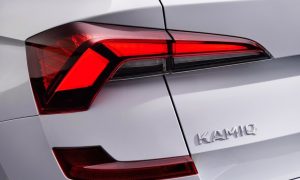
Ford has released its 2023 Integrated Sustainability and Financial Report, detailing the company’s progress on creating a more sustainable, inclusive and equitable transportation future.
Building on more than two decades of leadership in sustainability reporting, the report shares new data that shows Ford on track to achieve carbon neutrality no later than 2050 across its global vehicles, operations and supply chain. In Europe, Ford operations, logistics and direct suppliers are targeting carbon neutrality in 2035, as well as zero tailpipe emissions for all cars and vans.
The new report also highlights progress on initiatives aligned with the company’s commitment to source raw materials that are responsibly produced and make its EV and battery supply chain more transparent.
“We believe the long-term success of any business is inextricably linked with creating value for customers, employees and communities, while also caring for the planet,” said executive chair Bill Ford. “We are undertaking a massive transformation to lead the electric and connected era of transportation and are committed to being transparent about our progress and opportunities for improvement. We are excited and optimistic about the future and look forward to making carbon-neutral transportation a reality.”
“In 2022, we made a number of advancements toward carbon neutrality, including introducing new exciting EVs, upgrading our facilities, investing in carbon-free and renewable electricity, and using our purchasing power to help scale low-carbon materials,” said Cynthia Williams, Ford’s global sustainability director. “We’re also creating new visibility and accountability for a global EV and battery supply chain that upholds our values. This is how we can help build a more sustainable, equitable and inclusive transportation future.”
On the Road to Better
The Road to Better is Ford’s commitment to building a more sustainable, inclusive and equitable transportation future, where every person is free to move and pursue their dreams. As the company celebrates its 120th anniversary this year, it recognises that Ford’s long-term success will depend on creating value for customers, employees and communities.
Leading the electric vehicle revolution
Around the world, Ford is dedicating more than $50 billion from 2022 through 2026 to develop and manufacture electric vehicles and batteries. The company is on the path to reach targeted annual production run rate of 600,000 EVs by late 2023, and more than 2 million by the end of 2026. By 2030, half of Ford’s global vehicle sales volume is expected to be electric.
The report outlines statistics on the impact of this strategy, including the carbon dioxide emissions savings of driving a Ford EV. Estimates show that depending on the model, driving a Ford EV could reduce lifetime carbon dioxide emissions by as much as 60 per cent when charged with U.S. grid-average electricity compared to driving a similar internal combustion engine vehicle. For the F-150® Lightning®, this carbon dioxide reduction over the vehicle’s lifespan is equivalent to the carbon dioxide saved by not using approximately 33,225 litres of petrol. The F-150® Lightning® pickup became America’s best-selling electric pickup when it began its first full month of dealer retail sales in June 2022.
Accelerating progress to carbon neutrality
Beyond reducing tailpipe emissions from its vehicles, Ford’s commitment to carbon neutrality focuses on reducing emissions from the facilities, processes and electricity that support the company’s operations and global supply chain.
Ford reduced Scopes 1 and 2 emissions by 35.4 per cent since 2017, which accounts for direct emissions from its operations and indirect emissions from energy purchases. Ford invested more than $26 million in facility upgrades to improve energy efficiency and conservation across its facilities and manufacturing processes, helping the company achieve a 40 per cent reduction in absolute manufacturing greenhouse gas emissions from 2017. The company also made strides to transition to carbon-free electricity usage, incorporating 60.6 per cent carbon-free electricity into its operations globally, including all purchased electricity for manufacturing in Europe and Mexico. Globally, 42.6 per cent was renewable electricity.
Between 2019 and 2022, Ford additionally cut overall Scope 3 emissions, which include emissions from suppliers, products and other non-facility sources, by an estimated 23 per cent. Ford was the first American automaker to include its global supply chain on the Manufacture 2030 platform, inviting 3,000 Tier 1 supplier sites to participate in the program designed to help them measure, mitigate and reduce emissions. Ford plans to invite additional Tier 1 and indirect suppliers to participate in Manufacture 2030 in 2023.
Building a responsible EV supply chain
Ford works to ensure that the company’s global supply chain protects the environment and human rights. As it builds a new EV and battery supply chain, the company is taking an important first step to secure raw materials directly from mining companies aligned with Ford’s corporate policy. The report details several new initiatives to increase transparency, traceability and due diligence.
In 2021, Ford initiated EV and battery supply chain mapping and auditing to better understand the origins of raw materials in its EV supply chain, including nickel, lithium, cobalt and graphite. To date, the project has conducted 30 supplier audits along these four critical mineral battery supply chains at all tiers to the mine site. In early 2023, along with its suppliers, the company also underwent an audit of its nickel, lithium and cobalt due diligence management systems. Building on that process, Ford strengthened its corporate practices, including introducing new environmental, social and governance requirements into its sourcing agreements.
Across its broader supply chain, Ford continues to work closely with its suppliers and with third-party assurers like the Initiative for Responsible Mining Assurance, Responsible Minerals Initiative and Responsible Business Alliance to identify and address environmental and human rights issues in its supply chain against comprehensive criteria outlined in the company’s Supplier Code of Conduct. In 2022, Ford trained 844 purchasing employees, 2,647 other Ford employees and 979 suppliers in supply chain sustainability topics, including anti-corruption, fair labour and environmental protection practices.



